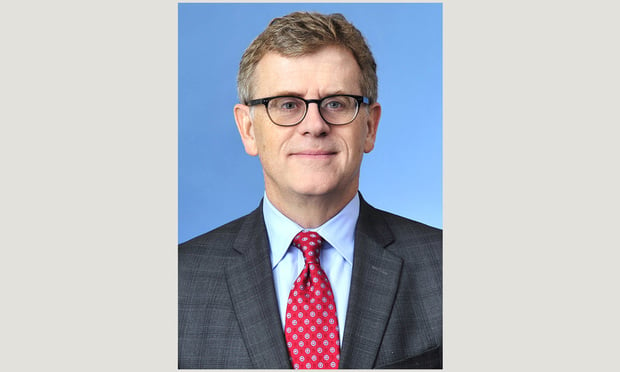No Judge Is an Island
A recent flurry of decisions in the U.S. Court of Appeals for the Seventh Circuit reveals that courts may follow a particular percolating issue, coordinate their decisions, and release opinions to address recurring issues or to clarify the law of the circuit.
February 10, 2021 at 09:21 AM
7 minute read
The internal workings of courts are largely a black box, even to those of us who often appear before them. Briefs, evidence, precedent, and oral argument go in, and decisions come out. What happens between the input and the output is generally unknown. From time to time, a judge will reveal some tidbit of how his court works. Otherwise, except for the broad strokes that some courts publish about their internal operating procedures, we are left to guess about what is going on behind the scenes, based on imperfect information. Despite knowing little about what is going on, we are often quick to offer our views what must be going on, when the court will rule, which judge on a panel is likely to write the opinion, or even how the court will decide. No matter how good we are, our educated guesses are just that. Courts rule when they are ready to rule, and reach the decisions they do—after deliberations behind the scenes—for reasons that we cannot identify with certainty.
 One view of what happens behind the scenes is that individual chambers operate as independent law offices, each drafting and circulating opinions without paying much attention to what is going on in other chambers or in other courts. Maybe our careers of meeting deadlines and representing clients leads us to assume that judges, free from these constraints, are also free to do whatever they want. While this may be right in some regards, a recent flurry of decisions in the U.S. Court of Appeals for the Seventh Circuit reveals that courts may follow a particular percolating issue, coordinate their decisions, and release opinions to address recurring issues or to clarify the law of the circuit.
One view of what happens behind the scenes is that individual chambers operate as independent law offices, each drafting and circulating opinions without paying much attention to what is going on in other chambers or in other courts. Maybe our careers of meeting deadlines and representing clients leads us to assume that judges, free from these constraints, are also free to do whatever they want. While this may be right in some regards, a recent flurry of decisions in the U.S. Court of Appeals for the Seventh Circuit reveals that courts may follow a particular percolating issue, coordinate their decisions, and release opinions to address recurring issues or to clarify the law of the circuit.
This recent spate of opinions all deal with the issue of Article III standing to sue under the Fair Debt Collection Practices Act (FDCPA). Like other appellate courts, the Seventh Circuit decides a steady diet of cases brought under federal regulatory statutes, such as the FDCPA. The statute grants a federal remedy for violations of debt collection requirements. Some of the statute's provisions are specific and directive: one provision defines the information that may be placed on the outside of an envelope containing a debt collection letter. Other provisions are general, such as a prohibition of unfair and deceptive practices.
Over the years, the Seventh Circuit has addressed the application of Article III's standing requirement, including in the debt collection context. Applying the Supreme Court's guidance in Spokeo v. Robins, 136 S. Ct. 1540 (2016), a Fair Credit Reporting Act case, the Seventh Circuit addressed standing under the FDCPA in Casillas v. Madison Avenue Associates, 926 F.3d. 329 (7th Cir. 2019). This issue does recur, however, and from March through September 2020, the Seventh Circuit heard argument in a number of other cases involving standing challenges to FDCPA claims.
During a single week in mid-December, 2020, the Seventh Circuit issued six opinions addressing Article III standing to sue under the FDCPA. The opinion drafters were obviously aware of the other cases—they cross-cited and applied the other opinions, three different judges drafted the opinions, and six other members of the court joined one or more of the opinions.
This flurry of opinions began on Dec. 14, when the court issued Larkin v. Finance System of Green Bay, 982 F.3d 1060 (7th Cir 2020), in which it explained the Casillas standard and held the FDCPA requires the challenge debt collection letter operated "to their detriment." The court also rejected a "procedural/substantive" distinction that some district courts had applied in prior cases. The next day, the court issued four more opinions on the same topic. In Brunett v. Convergent Outsourcing, 982 F.3d 1067 (7th Cir 2020), the court applied Larkin and rejected a claim that plaintiff's "confusion" satisfied Article III. The p laintiff did not "tie that confusion to an injury" and did not act "to her detriment" based on that confusion. Allegations the plaintiff was intimidated and retained counsel also were insufficient to confer standing. In Gunn v. Thrasher, Buschmann & Voelkel, PC, 982 F.3d 1069 (7th Cir 2020), the court rejected annoyance and intimidation as bases for standing. In Spuhler v. State Collection Service, 983 F.3d 282 (7th Cir 2020), the court found the plaintiff did not have standing to sue because the record containing no evidence that the challenged letter "had an effect on how [the plaintiffs] responded." The court also issued Bazile v. Finance System of Green Bay, 983 F.3d 274 (7th Cir 2020), in which it held that the plaintiff lacked standing to sue for a dunning letter that omitted information where the letter did not hinder the plaintiff's "choices or some other substantive interest the statute protects." That appeal arose on contested facts. Acknowledging that standing may turn on factual issues, the court remanded the case to resolve factual issues underlying standing. Finally, on Dec. 21, the court issued Nettles v. Midland Funding, ___ F.3d ____ (7th Cir 2020), in which it applied Casillas and Larkin and held Article III required concrete injuries for both substantive and procedural violations. These cases will not be the court's last word on standing under the FDCPA or similar statutes.
These cases poke a hole in the view of judges as independent actors toiling in isolation and issuing stand-alone opinions. Instead, in this coordinated series of cases, nine of the court's members issued or joined opinions addressing a legal issue that is destined to recur in litigation before the court. Without holding an en banc hearing, the court established and applied legal principles to these oft-recurring issues. The judges coordinated their opinions, and the release of the opinions, and set forth their jointly held views about what Article III requires in FDCPA cases. Over the years, the Seventh Circuit has on other occasions issued related opinions resolving often-recurring issues involving criminal sentencing, supervised release, class action appeals, and other issues. These decisions reflect the court's active management of its cases and the coordinated resolution of issues that recur.
So what is the lesson to be learned from this? Just like lawyers, judges talk to one another, in the process of deciding a case. They recognize that they are not alone and that their decisions may impact the outcome in other cases. They are not in a race to stake out their own view of the law, or to establish the law of their circuit for other panels to have to deal with in later cases. From time to time judges and panels disagree openly, but they may also disagree in private—without the parties or lawyers ever knowing about it—even if the process leads to decisions that reflects consensus and agreement. And, if they are talking to each other about cases, maybe they are talking to each other about the lawyers who appear before them too.
Michael T. Brody is a partner at Jenner & Block. Brody serves as co-chair of the firm's appellate and Supreme Court practice and co-chair of its class action practice.
NOT FOR REPRINT
© 2025 ALM Global, LLC, All Rights Reserved. Request academic re-use from www.copyright.com. All other uses, submit a request to [email protected]. For more information visit Asset & Logo Licensing.
You Might Like
View All
'Erroneous Rulings'?: Wilmer Asks 4th Circuit to Overturn Mosby's Criminal Convictions
3 minute read
Apple Files Appeal to DC Circuit Aiming to Intervene in Google Search Monopoly Case
3 minute read

A Plan Is Brewing to Limit Big-Dollar Suits in Georgia—and Lawyers Have Mixed Feelings
10 minute readLaw Firms Mentioned
Trending Stories
- 1DC Lawsuits Seek to Prevent Mass Firings and Public Naming of FBI Agents
- 2Growth of California Firms Exceeded Expectations, Survey of Managing Partners Says
- 3Blank Rome Adds Life Sciences Trio From Reed Smith
- 4Divided State Supreme Court Clears the Way for Child Sexual Abuse Cases Against Church, Schools
- 5From Hospital Bed to Legal Insights: Lessons in Life, Law, and Lawyering
Who Got The Work
J. Brugh Lower of Gibbons has entered an appearance for industrial equipment supplier Devco Corporation in a pending trademark infringement lawsuit. The suit, accusing the defendant of selling knock-off Graco products, was filed Dec. 18 in New Jersey District Court by Rivkin Radler on behalf of Graco Inc. and Graco Minnesota. The case, assigned to U.S. District Judge Zahid N. Quraishi, is 3:24-cv-11294, Graco Inc. et al v. Devco Corporation.
Who Got The Work
Rebecca Maller-Stein and Kent A. Yalowitz of Arnold & Porter Kaye Scholer have entered their appearances for Hanaco Venture Capital and its executives, Lior Prosor and David Frankel, in a pending securities lawsuit. The action, filed on Dec. 24 in New York Southern District Court by Zell, Aron & Co. on behalf of Goldeneye Advisors, accuses the defendants of negligently and fraudulently managing the plaintiff's $1 million investment. The case, assigned to U.S. District Judge Vernon S. Broderick, is 1:24-cv-09918, Goldeneye Advisors, LLC v. Hanaco Venture Capital, Ltd. et al.
Who Got The Work
Attorneys from A&O Shearman has stepped in as defense counsel for Toronto-Dominion Bank and other defendants in a pending securities class action. The suit, filed Dec. 11 in New York Southern District Court by Bleichmar Fonti & Auld, accuses the defendants of concealing the bank's 'pervasive' deficiencies in regards to its compliance with the Bank Secrecy Act and the quality of its anti-money laundering controls. The case, assigned to U.S. District Judge Arun Subramanian, is 1:24-cv-09445, Gonzalez v. The Toronto-Dominion Bank et al.
Who Got The Work
Crown Castle International, a Pennsylvania company providing shared communications infrastructure, has turned to Luke D. Wolf of Gordon Rees Scully Mansukhani to fend off a pending breach-of-contract lawsuit. The court action, filed Nov. 25 in Michigan Eastern District Court by Hooper Hathaway PC on behalf of The Town Residences LLC, accuses Crown Castle of failing to transfer approximately $30,000 in utility payments from T-Mobile in breach of a roof-top lease and assignment agreement. The case, assigned to U.S. District Judge Susan K. Declercq, is 2:24-cv-13131, The Town Residences LLC v. T-Mobile US, Inc. et al.
Who Got The Work
Wilfred P. Coronato and Daniel M. Schwartz of McCarter & English have stepped in as defense counsel to Electrolux Home Products Inc. in a pending product liability lawsuit. The court action, filed Nov. 26 in New York Eastern District Court by Poulos Lopiccolo PC and Nagel Rice LLP on behalf of David Stern, alleges that the defendant's refrigerators’ drawers and shelving repeatedly break and fall apart within months after purchase. The case, assigned to U.S. District Judge Joan M. Azrack, is 2:24-cv-08204, Stern v. Electrolux Home Products, Inc.
Featured Firms
Law Offices of Gary Martin Hays & Associates, P.C.
(470) 294-1674
Law Offices of Mark E. Salomone
(857) 444-6468
Smith & Hassler
(713) 739-1250









